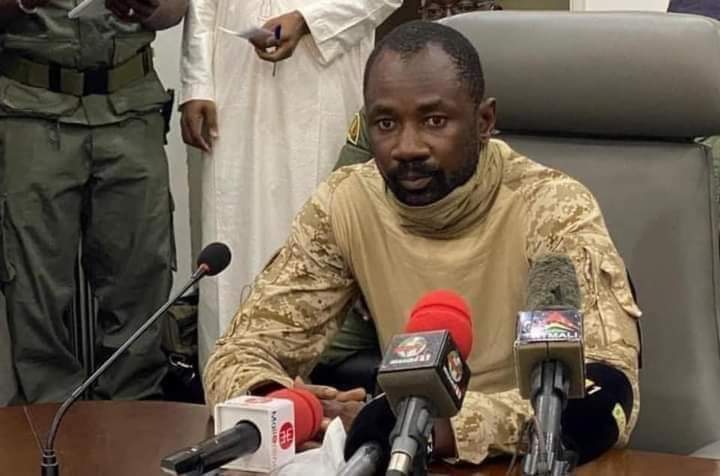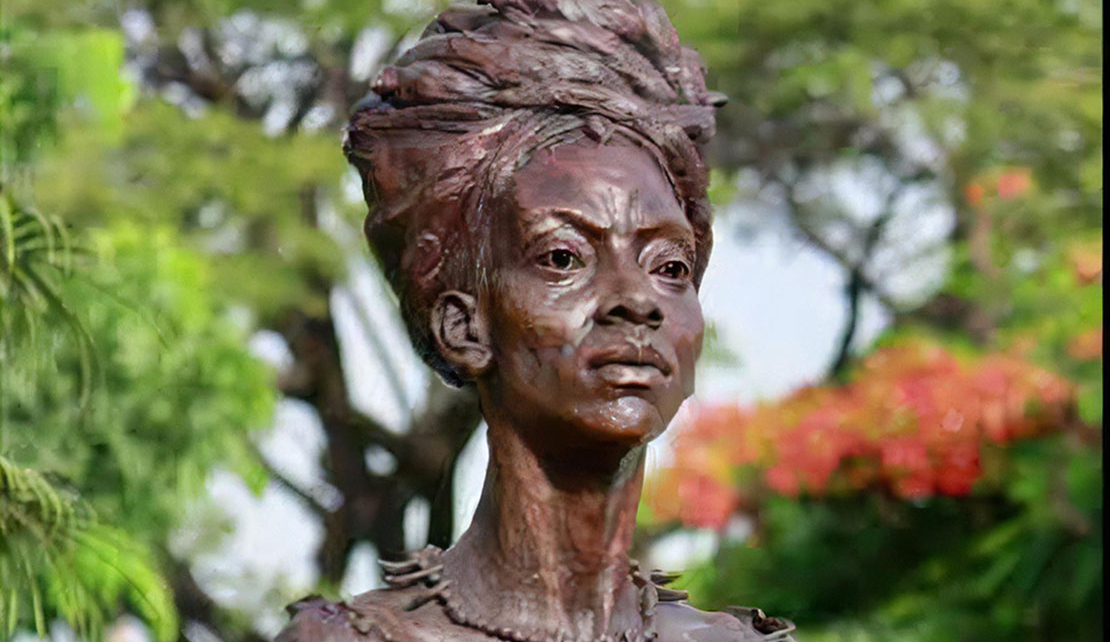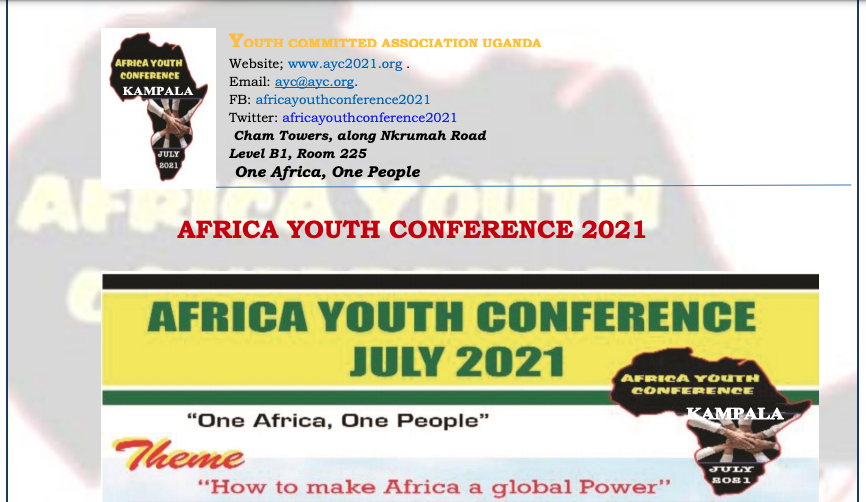
Wamkele Mene
by Wamkele MENE
The African Continental Free Trade Area (AfCFTA) Secretariat is the sole supranational organisation in the continent, legally established and mandated to handle the rules of trade between African countries. At the core is the implementation of the Agreement Establishing the AfCFTA, negotiated, signed and ratified by the State Parties.
The goal is to ensure that trade is conducted smoothly, predictably and as freely as possible across the continent. The AfCFTA Secretariat, which is headquartered in Accra – Ghana at the Africa Trade House, was established in February 2020 following the election of its first Secretary-General.

The AfCFTA operates a continental system of trade rules, it acts as a platform for negotiating trade protocols, it facilitates the settlement of disputes between State Parties and it monitors the implementation of the AfCFTA Agreement.
With 55 countries, the AfCFTA will be the largest Free Trade Area (FTA) in the world in terms of membership, covering a market of 1.3 billion people with a combined Gross Domestic Product (GDP) of US$3.4 trillion (2020).
The Agreement establishing the African Continental Free Trade Area (AfCFTA) was signed at an Extraordinary Session of the Assembly of the African Union in Kigali – Rwanda on 21 March 2018. The AfCFTA Agreement is a framework agreement, with comprehensive coverage of Trade in Goods, Trade in Services, Investment, Competition Policy, Intellectual Property Rights, Women and Youth in Trade, and Digital Trade as well as Rules and Procedures for the Settlement of Disputes. The overall objective of the AfCFTA is to create a single continental market for goods and services, with free movement of business persons and investments, paving the way for accelerating the establishment of the Continent’s first ever Customs Union.
Role of Regional Economic Communities (RECs)
Although the AfCFTA negotiations are Member States-driven, RECs continue to coordinate the positions and approaches of their respective Member States in the negotiations – based on existing commitments at the regional level.
The Preamble to the Agreement establishing the AfCFTA acknowledges RECs as the building blocks towards the establishment of the AfCFTA. One of the principles of the AfCFTA is the recognition of RECs FTAs as the building blocks of the AfCFTA, which is expected to build on the progress that has been achieved by the RECs.
Article 19 of the Agreement establishing the AfCFTA states: “State Parties that are members of other regional economic communities, regional trading arrangements and customs unions, which have attained amongst themselves higher levels of regional integration under this agreement, shall maintain such higher levels among themselves.” Article 19 ensures that the AfCFTA Agreement will complement and not adversely affect or contradict Member States existing commitments under RECs.
At the Ordinary Session of the Heads of States and Government that was held in January 2017, the Heads of States directed that there should be a clear division of labour and effective collaboration between the African Union Commission, RECs, the Regional Mechanisms (RMs), the Member States and other continental institutions in line with the principle of subsidiarity.
Therefore the need to establish a clear and effective division of labour is necessitated by the need for the African Union Commission; RECs; Continental Institutions and Member States to work together in every area of integration based on their respective competences so as to remove overlaps and duplication. This ensures the delineation of responsibilities within each area or sector of integration based on subsidiarity, comparative advantage, cost/burden sharing and proximity to the people.
Role of Parliaments
The role of African Parliaments, and in particular the SADC Parliamentary Forum, in the AfCFTA negotiations, implementation and monitoring processes cannot be over-emphasised. African Parliaments are the legitimate representatives of the people; and should play a more direct and active role in the AfCFTA negotiations, implementation and monitoring processes. In my view, no other official or function can better articulate the will and interests of African people than their elected representatives across Parliaments of the African continent.
I wish to work closely with you, the representatives of the peoples of Africa, to ensure that we have inclusivity in the implementation and benefits of this Agreement. In this regard, Parliaments have a critical role to play. I pledge to work with you to address the concerns of our people to enable Parliaments to expeditiously ratify the AfCFTA Agreement, such that this agreement truly becomes universal in Africa. Parliaments also have a role to play in bringing the AfCFTA closer to the people and ‘assist’ in the implementation and monitoring processes. The SADC Parliamentary Forum must continue to provide a forum where Parliamentarians from each of the Member States can engage on topical issues such as the AfCFTA.
I wish to call upon the SADC Parliamentary Forum and the Parliamentarians of the remaining Member States that are yet to ratify to use their good offices to get more Member States to ratify the AfCFTA. I stand ready to assist those countries that have not yet ratified the AfCFTA to enable them to do so.
Brief on AfCFTA
The Abuja Treaty establishing the African Economic Community, laid out a road map towards the establishment of an economic community covering the entire African continent
Intermediate steps towards the African Economic Community were the setting up of Free Trade Areas (FTAs) and Customs Unions in each of Africa’s sub regions under the umbrella of its RECs, prior to the establishment of a continental FTA.
In line with the Abuja Treaty, several RECs have either operational free trade areas or functioning customs unions.
In 2012, the African Union Summit made a decision on Boosting Intra-Africa Trade (BIAT) and fast-tracking the establishment of the African Continental Free Trade Area [AfCFTA]. The overall objective of the AfCFTA is to create a single continental market for goods and services, with free movement of business persons and investments, paving the way for accelerating the establishment of the Continental Customs Union.
In September 2015, the African Union Member States adopted Agenda 2063 as a robust framework for the realisation of the Pan-African vision of “an integrated, prosperous and peaceful Africa”. The AU Agenda 2063 underscores the importance of free movement of Africans in Africa for meaningful integration and increased trade.
At the moment, there are 54 out of 55 African countries that have signed and 38 countries have ratified the Agreement. 36 countries are State Parties by virtue of their deposits of instruments of ratification. In order to fully operationalise the AfCFTA and to make it commercially meaningful, we have to ensure that the requisite customs procedures are in place at national level and REC level. In due course, we shall host meetings of Customs Authorities and Ministers of Trade to take concrete steps towards the operationalisation and implementation of the AfCFTA, beyond the start of trading.
We have to collectively take action to address the low level of intra-Africa trade, which is less than 18%. The reasons are multifaceted: inadequate infrastructure; low levels of industrialisation and productive capacity; poor implementation record of protocols and existing agreements; high cost of doing business, and many others.
Boosting intra-Africa trade means that we have to transcend our trading patterns that are based on region. No region of Africa shall be able to diversify its export base by trading with itself.
AfCFTA and Pandemics and Protectionism
The World Bank estimates that the AfCFTA would significantly boost African trade, particularly intra-Africa trade in manufacturing. By 2035, the volume of total exports would increase by almost 29% relative to business as usual. Intra-Africa exports are estimated to increase by more than 81%, while exports to non-African countries are estimated to rise by 19%. This would create new opportunities for our manufacturers and workers.
Implementing the AfCFTA Agreement would contribute to lifting an additional 30 million people from extreme poverty and 68 million people from moderate poverty by 2035. Real income gains from full implementation of the agreement are estimated to increase by 7% or nearly $US450 billion. As our Member States struggle to manage the consequences of the COVID-19 pandemic, the AfCFTA can provide an anchor for long term economic reform and integration.
The start of trading under the AfCFTA on 1 January 2021 will help the continent quickly recover and rebuild economically in the post COVID-19 era. Currently, most commodity markets, with the exception of a few, are subdued.
In this regard, the AfCFTA offers a historic opportunity for our countries to promote export diversification by increasing intra-Africa trade in value added products, both physically and use of African e-commerce platforms.
If the AfCFTA remains on the shelves of trade negotiators, instead of transforming it into an engine of boosting intra-Africa trade, Africa will continue to lose competitiveness in global markets.
I am fully conscious of the potential risks that liberalisation of trade can present to domestic economies. Transhipment of goods from third countries is a clear and present danger that can lead to job losses. By working with our customs authorities, we will take active steps to mitigate the risks of transhipment of goods.
I wish to thank the Rt. Honourable Speaker of the SADC Parliamentary Forum; the Secretary-General; the Parliamentarians and the organisers of the Meeting and for the kind invitation extended to the AfCFTA Secretariat. As the legitimate representatives of the people, I invite you to play a more direct and active role in the negotiation, implementation and monitoring processes of the AfCFTA.
I pledge my support to the SADC Regional Integration process, I shall be available at your disposal to provide progress reports on the operationalisation of the AfCFTA Secretariat and the implementation of the AfCFTA.
- Wamkele Mene is the Secretary-General of the AfCFTA Secretariat








